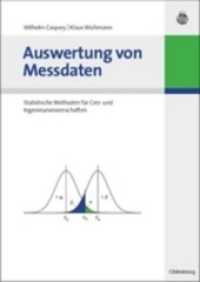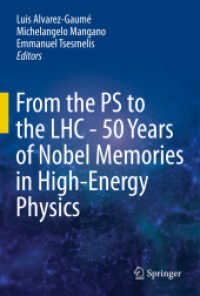- ホーム
- > 洋書
- > ドイツ書
- > Social Sciences, Jurisprudence & Economy
- > Politics, Society, Work
- > public administration
Description
(Text)
Energy generation remains a crucial part of Urban Planning, which directly impacts on the quality of urban life. Furthermore, development of urban spaces brings with it vast energy demands. Thus, the generation of energy ought to be placed at the core focus of planning, especially from a developing country perspective. The case of South Africa and it's pioneer project in the EThekwini Municipality reveals how energy is derived from landfills through the conversion and combustion of methane gas. In addition, the benefits of converting methane gas found within landfills into energy go a long way in performing environmental services to mankind. These environmental services purify the environment, thus enhancing the quality of life for mankind. This gives impetus for methane gas conversion projects on two pillars; the first being energy generation and the second being environmental sustainability. However, the policy framework that governs such projects within a country ought to givemore autonomy to stakeholders undergoing these energy efficiency projects in order to reap the real benefits of methane gas conversion.








